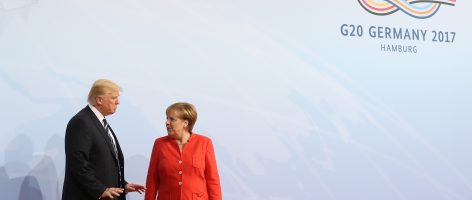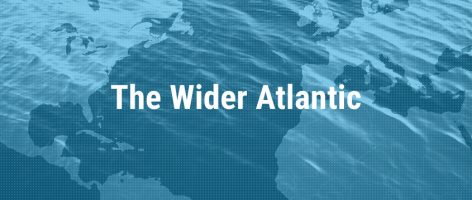
Including Workers’ Voices in the Digital Transformation
With the digital transformation unfolding across the OECD’s wealthy democracies, all eyes are on California. The land of self-driving cars and artificial intelligence, California has captured the imaginations not just …

Germany’s Number 1 Task: Renew the Global Economic Order
The most important contribution the new German Federal Government can make is to support and reform the global economic order that has been responsible for 70 years of peace and …

Neue Neue Ostpolitik
On June 15, the US Senate approved an act to sharply expand sanctions imposed on Russia in retaliation for its intervention in eastern Ukraine and annexation of Crimea in 2014. …

A Tale of Two Communiqués
During Richard Nixon’s historic 1972 visit to China, the U.S. president reportedly asked Premier Zhou Enlai what he thought about the impact of the French Revolution on history, to which …
Recent Authors
AGI provides knowledge, insights, and networks as tools to solve the challenges ahead.
Support Our Work
Will Globalization’s Third Phase Be Like Its First?
During the world’s first phase of globalization before World War I, I had a great-grandfather who was a cigarette manufacturer in Czarist Russia. He traveled regularly to Turkey to purchase …

Companies Compete. Countries Pursue Their Interests. That’s a Big Difference.
If it becomes a new White House mantra, a key paragraph that appeared in an op-ed by National Security Advisor H.R. McMaster and National Economic Council chief Gary Cohn in …

John Kennedy and Illiberalism
May 29 will mark the 100th anniversary of the birth of John F. Kennedy, the 35th President of the United States. Kennedy may be well known not only to Germans, …

Pragmatic France Elects a Reformer
There is an old story about the serious French thinker who, when presented with a common-sense solution to a problem, will find fault by retorting that the idea “works in …
G20 – Global Trade Governance in Uncertain Times
The G20 is facing its second big litmus test. Almost ten years ago, only decisive action by the G20 prevented the global economy from spiraling into a deep depression. Not …
Europe and the World Need to Be Strategically Patient with Trump
As international delegates begin arriving in Washington, DC, for the first IMF/World Bank semi-annual meetings of the Trump era, among the biggest question facing leaders from around the world is …
Europe at 60: A German View
In the last sixty years, the institutionalized cooperation between sovereign nation states in Europe has been a major success. Underpinned by a U.S. commitment to the defense of Europe, European integration …



